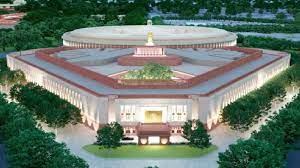समर्थन की तरफ जाते हुए आगामी राज्य चुनावों के लिए अमित शाह की रणनीति
आगामी राज्य चुनावों के लिए अमित शाह की रणनीति भारतीय राजनीति के मैदान में जोरदार तबादला हुआ है, और इसके महत्वपूर्ण हिस्से के रूप में गुजरने वाले आगामी राज्य चुनावों के लिए अमित शाह की रणनीति पर गौर करना महत्वपूर्ण है। भारतीय राजनीति के इस महत्वपूर्ण खिलाड़ी की चालें हमें दिखाती हैं कि वह किस तरह से अपने लक्ष्यों को प्राप्त करने के लिए अद्वितीय रणनीतियों का इस्तेमाल कर रहे हैं।
अमित शाह के नेतृत्व में भारतीय भाजपा ने राजनीतिक मैदान में एक नई दिशा देखी है। उनकी प्रमुख रणनीति में से एक है, प्राथमिकता देना राज्यों के सीमाओं की ओर बढ़ने की है, जो सीमाओं के बाहर के राज्यों को भाजपा के पक्ष में जोड़ने का हिस्सा है।
अमित शाह की इस रणनीति का मुख्य उद्देश्य है प्राकृतिक सीमा के पार वाले राज्यों में भाजपा की नई पैरदर्शीता और भविष्य के लिए चुनौती पूर्ण विकल्पों को प्रस्तुत करना है। उनका मानना है कि राज्यों के सामाजिक और आर्थिक विकास में उनकी नई दिशा भाजपा को वोटरों के बीच अधिक समर्थन प्राप्त करने में मदद करेगी।
एक और महत्वपूर्ण पहलू यह है कि अमित शाह ने संगठन की मजबूती को बढ़ावा दिया है, खासकर युवा नेताओं को मिलकर काम करने के लिए प्रोत्साहित किया है। उन्होंने युवा नेताओं को महत्वपूर्ण भूमिकाओं में भर्ती किया है, जिससे पार्टी का विस्तार हुआ है और उन्होंने सुनिश्चित किया है कि प्राकृतिक सीमा के पार वाले राज्यों में पार्टी का प्रतिनिधित्व मजबूत हो।
इसके अलावा, अमित शाह ने सोशल मीडिया का भी उपयोग किया है, जिससे वह युवा पीढ़ियों तक अपने संदेश को पहुंचा सकें। उन्होंने युवाओं के बीच अपनी पॉपुलैरिटी को बढ़ाने के लिए इस माध्यम का सही तरीके से इस्तेमाल किया है।
आगामी राज्य चुनावों के लिए अमित शाह की रणनीति इस समय,अमित शाह और उनकी पार्टी ने राजनीतिक जंग में नई दिशा दिखाई है, और उनकी
रणनीति आगामी राज्य चुनावों में महत्वपूर्ण भूमिका निभा सकती है। वह न सिर्फ राज्यों के सीमाओं को तोड़ने का प्रयास कर रहे हैं, बल्कि युवा नेताओं को बढ़ावा देने और सोशल मीडिया के माध्यम से वोटरों के पास अपने संदेश पहुंचाने का प्रयास कर रहे हैं। यह उनकी अम्बिशनस और रणनीति का स्पष्ट प्रतीक है, जिसका उद्देश्य है भारतीय राजनीति में एक नई दिशा देना।





